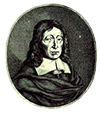In Paradise Lost Milton sets up the Archangel Michael as the polar opposite of Satan, leading the forces loyal to God. However, critical and popular opinions about the poem have never accorded Michael the same recognition as his opponent. Yet Michael defeats Satan in a duel during the battles in Book VI (VI.320-34), and he dominates the last two Books XI and XII, in which Adam and Eve are reconciled to their new fallen condition. The New Testament already showed Michael leading God's armies against Satan's forces in the Book of Revelation during the War in Heaven, as in Paradise Lost. Just south of Constantinople, a great shrine called the Michaelion was built on a previous religious site devoted to healing, by the emperor Constantine, to commemorate his military victory over "diabolic" opponents. Constantine attributed his success to Michael. Thereafter images of Michael became even more associated with military triumphs over evil, which was often portrayed iconically as a dragon or a serpent, and hence associated with the Tempter in Genesis, usually identified as Satan. The Book of Revelation twice refers to "the dragon, that ancient serpent, who is called the Devil and Satan" (129; 20.2). As a result of his various victories Michael was seen as head of the heavenly hosts, hence Archangel, and given the honorary title of Saint. In late medieval Christianity, Michael, together with Saint George, became he patron saint of chivalry (compare Spenser's Redcross Knight), and he is now considered the patron saint of police officers and the military. In the British honors system, a chivalric order founded in 1818 is also named for these two saints, the Order of St. Michael and St. George. Some early Protestant scholars even identified Michael with the pre-incarnate Christ: Michael's Hebrew name can be interpreted as "who is like God." However, this may be a question: "Who is like God?" Then Michael would appear to represent god's power but remains a humbler, lesser being. Milton's Book VI confirms this duality in that, versus Satan, Michael ultimately achieves only a destructive stalemate, resolved by the intervention of the Son – perhaps making the point that only love can defeat evil, not force. Michael remains enormously popular to this day, as illustrated by the pilgrimage site of Mont Saint Michel, the statue of Michael conquering Satan on the facade of Coventry Cathedral, and even the name of the Russian seaport Arkangelsk, named after its Archangel Michael Monastery. Milton must have seen many images like those in the accompanying video on his travels in Europe, if not some specific ones. So the prominence accorded Michael in Paradise Lost is wholly in keeping with the mainline traditions of Christianity. The clip ends with Dante's vision of Heaven at the end of The Divine Comedy.
